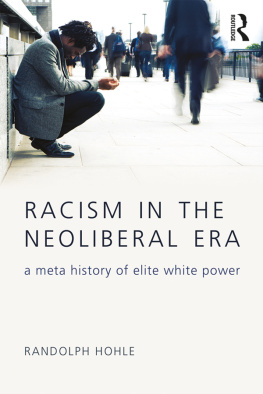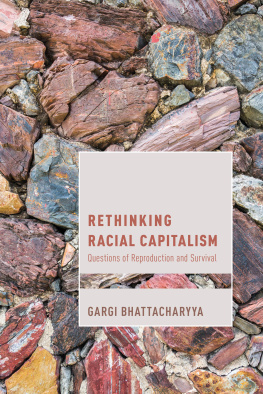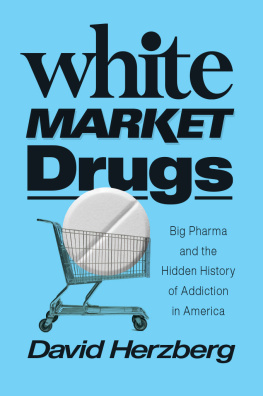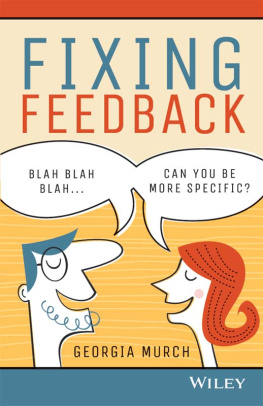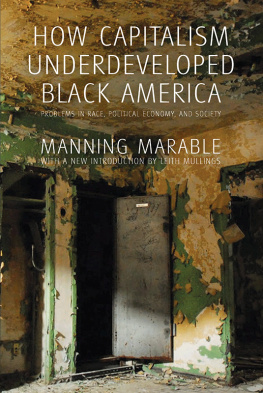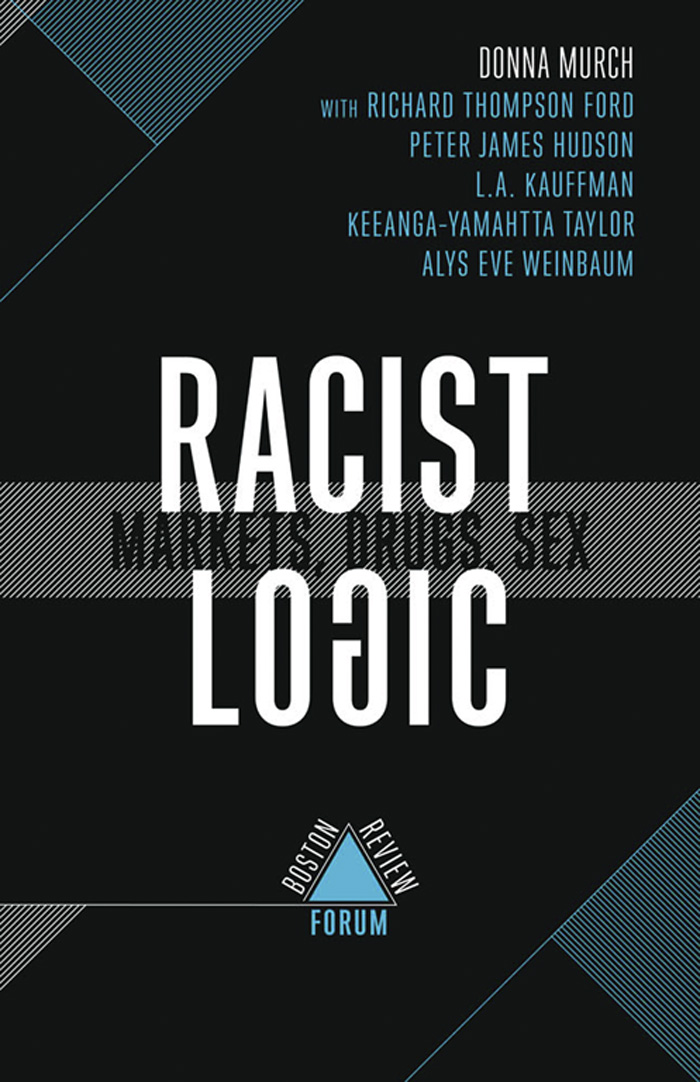Table of Contents
Guide
RACIST LOGIC
MARKETS, DRUGS, SEX
Editors-in-Chief Deborah Chasman & Joshua Cohen
Executive Editor Chloe Fox
Managing Editor Adam McGee
Senior Editor Matt Lord
Engagement Editor Rosie Gillies
Editorial Assistants Anwar Omeish & Catherine Zhang
Publisher Louisa Daniels Kearney
Marketing and Development Manager Dan Manchon
Finance Manager Anthony DeMusis III
Distributor The MIT Press, Cambridge, Massachusetts,and London, England
Printer Sheridan PA
Board of Advisors Derek Schrier (chairman), Archon Fung, Deborah Fung, Alexandra Robert Gordon, Richard M. Locke, Jeff Mayersohn, Jennifer Moses, Scott Nielsen, Robert Pollin, Rob Reich, Hiram Samel, Kim Malone Scott
Interior Graphic Design Zak Jensen
Cover Design Alex Camlin
Racist Logic is Boston Review Forum 10 (44.2)
Peter James Hudson's essay Bankers and Empire is adapted and reprinted with permission from Bankers and Empire: How Wall Street Colonized the Caribbean, by Peter James Hudson, published by the University of Chicago Press. 2017 by the University of Chicago Press. All rights reserved.
To become a member, visit: bostonreview.net/membership/
.
Boston Review
PO Box 425786, Cambridge, MA 02142
617-324-1360
ISSN : 0734-2306 / ISBN : 978-1-946511-36-2
Authors retain copyright of their own work.
2019, Boston Critic, Inc.
d_r0
Editors Note
Deborah Chasman & Joshua Cohen
WITH WHITE MORTALITY RATES soaring as a result of opioid use, drug addiction has morphed from a criminal crisis into a health crisis. This should not surprise us since, as Donna Murch notes in her lead essay, Historically, the fundamental division between dope and medicine was the race and class of users.
But by examining the opioid crisis alongside the War on Drugswhich has locked up so many people of coloras well as the Trump administration's immigration policies, Murch brings an otherwise familiar story into new territory. To understand the twisted logic that created the divergent responses to drug usesuccor and sympathy for white users, prison and expulsion for people of colorMurch draws on Cedric Robinson's idea of racial capitalism. She shows how a racialized regime of drug prohibitions and a commercialized approach to prescription pharmaceuticals led Purdue Pharma to market OxyContin specifically to whites because it guaranteed them the longest head start on enforcement attempts and thus the biggest profits.
Racist Logic continues Boston Review's interest in racial capitalism, and readers will find that it resonates with Forum 1, Race Capitalism Justice, to which Murch was also a contributor. Other contributors to Racist Logic consider how the idea of a specifically racial capitalism helps us understand the history of international banking (Peter James Hudson), the consumerism and commodification of black masculinity (Jordanna Matlon), the buying and selling of women's eggs and uteruses (Alys Eve Weinbaum), Michelle Obama's dubious bootstrap advice to black youth (Keeanga-Yamahtta Taylor), and the workings of affirmative action at elite universities (Richard Thomspon Ford).
The logic is grim, but there is cause for hope. As we go to press, a number of museums have announced that they will refuse money from the Sackler family, which owns Purdue Pharmayielding, in part, to protests organized by forum respondent L.A. Kauffman. Moreover, the company settled a $270 million lawsuit with the state of Oklahoma, opening the door for future cases. Our ambitious hope is that Racist Logic will in some way contribute to this momentum.
How Race Made the Opioid Crisis
Donna Murch
IN MARCH 2018, President Donald Trump delivered a forty-minute speech about the crisis of addiction and overdose in New Hampshire. Standing before a wall tiled with the words Opioids: The Crisis Next Door, Trump blankly recited the many contributors to the current drug epidemic, including doctors, dealers, and manufacturers. Trump droned on mechanically until he reached a venomous crescendo about Customs and Border Protection's seizure of 1,500 pounds of fentanyl. He brightened as he shifted focus to three of his most hated enemies, first blaming China and Mexico for saturating the United States with deadly synthetic opioids, then moving seamlessly to what he considered one of the great internal threats: My administration is also confronting things called sanctuary cities, Trump declared. Ending sanctuary cities is crucial to stopping the drug addiction crisis.
Like so many of Trump's proclamations, this rhetoric is sheer political fantasy.
Since the late 1990s, yearly rates of overdose deaths from legal white market opioids have consistently exceeded those from heroin. According to the Centers for Disease Control and Prevention, between 1999 and 2017, opioid overdoses killed nearly 400,000 people with 68 percent of those deaths linked to prescription medications. Moreover, as regulators and drug companies tightened controls on diversion and misuse after 2010, the American Society of Addiction Medicine determined that at least 80 percent of new heroin users started out misusing prescription pain killers. Some data sets point to even higher numbers. In response to a 2014 survey of people undergoing treatments for opioid addiction, 94 percent of people surveyed said that they turned to heroin because prescription opioids were far more expensive and harder to obtain.
In the face of these statistics, the claim that the opioid crisis is the product of Mexican and Central American migrationrather than the deregulation of Big Pharma and the failures of a private health care systemis not only absurd, but insidious. It substitutes racial myth for fact, thereby rationalizing an ever-expanding machinery of punishment while absolving one of the most lucrative, and politically influential, business lobbies in the United States. This paradoxical relationship between a racialized regime of illegal drug prohibition and a highly commercial, laissez-faire approach to prescription pharmaceuticals cannot be understood without recourse to how racial capitalism has structured pharmacological markets throughout U.S. history. The linguistic convention of white and black markets points to how steeped our ideas of licit and illicit are in the metalanguage of race.
Historically, the fundamental division between dope and medicine was the race and class of users. The earliest salvos in the U.S. domestic drug wars can be traced to anti-opium ordinances in late nineteenth-centuryCalifornia as Chinese laborers poured into the state during the railroad building boom. In 1914 the federal government passed the Harrison Narcotics Act, which taxed and regulated opiates and coca products. Similarly, as rates of immigration increased in the aftermath of the Mexican revolution, Congress passed the Marijuana Tax Act of 1937, which targeted the customs and culture of newly settled migrants. Although cannabis was well known in the United Statesit was used in numerous tinctures and medicinesa racial scare campaign swept the country and warned that marijuana aroused men of color's violent lust for white women.
As bad as the early drug panics were, they paled in comparison to the carceral regime of drug prohibition and policing that emerged in the years after the civil rights movement. In the 1980s and 1990s, mass incarceration and the overlapping War(s) on Drugs and Gangs became de facto urban policy for impoverished communities of color in U.S. cities. Legislation expanded state and federal mandatory minimums for drug offenses, denied public housing to entire families if any member was even suspected of a drug crime, lengthened the list of crimes eligible for the federal death penalty, and imposed draconian restrictions of parole. Ultimately, multiple generations of youth of color found themselves confined under long prison sentences and faced with lifelong social and economic marginality.





